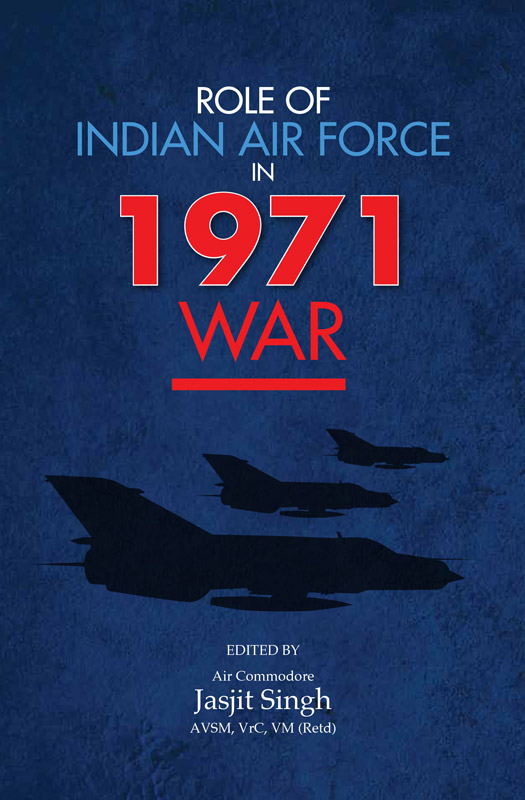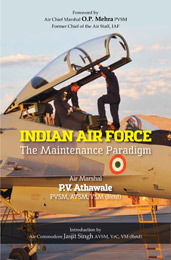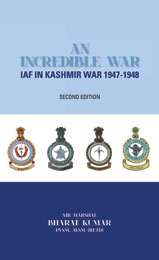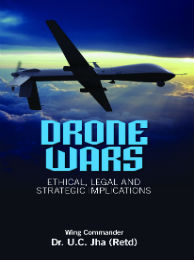Subjects
Recent View(s)
- Re-imaging the Indus: Mapping Media Reportage in India and Pakistan
- A Breath of Free Air!
- Role of Indian Air Force in 1971 War
- Scaling India-Japan Cooperation in Indo-Pacific and Beyond 2025: Corridors, Connectivity and Contours
- Nation Branding in Non-Western Societies: Projecting India as a ‘Civilisation State’
Role of Indian Air Force in 1971 War
Jasjit Singh
The Indian Air Force which was initially created as an independent military force proved to be an independent and versatile component of India’s military power in 1971 War. This book provides insightful essays and material to critically review and revalidate some of the continuing concepts and approaches to the planning and execution of military operations. This edited version delves into the national interest protection and legitimate compulsions for India to go into war. The compilation also lays out the canvass for a comparison study with the one in 1965. The analyses on military strategy of Pakistan and avenues of shortcoming in joint planning bring out important lessons in force employment. The aggressive dimensions of offensive actions by all the three Services have been well documented.
The 1971 War proved the heroism, steadfastness and courage of junior leadership that, incidentally, has also been the hallmark during Kargil in 1999. Despite frequent criticisms on jointness, instances of combined resoluteness and mutual trust during 1971 War contributed immensely to the victory. Valuable lessons can be inferred from instances where objectivity in political decisions brought about judicious outcomes through demonstrable use of military power.
The book also provides a few analytical horizons on the background framework of Simla Agreement and certain events in the past that could have developed a different template for history. Air power may be difficult to understand but an evaluation of the purpose, cost and expected gains as evident from various instances of history including 1971 War would bring an end to many irreconcilable and inchoate debates. This book makes for a compelling read for those in quest of understanding the competence of air power and its dominant influences to shape victory.


 Political Science
Political Science



